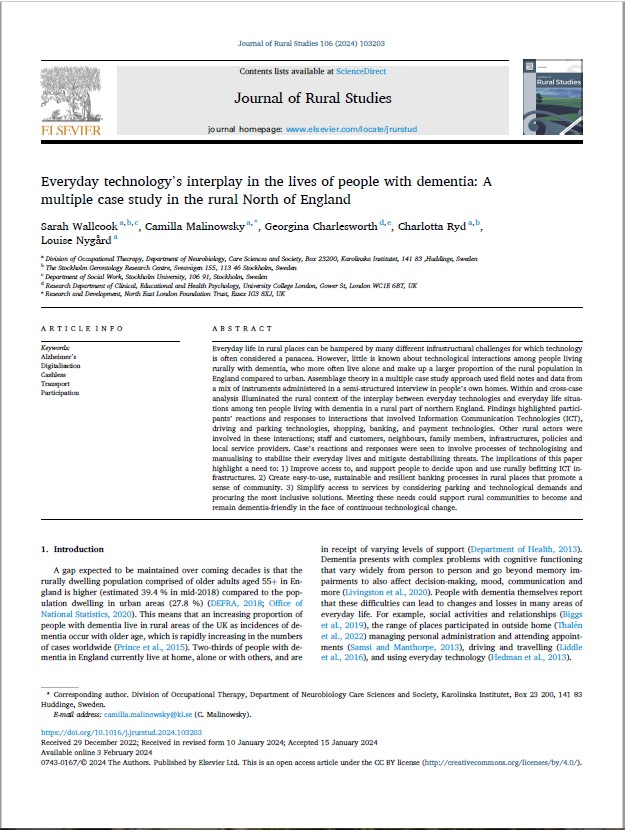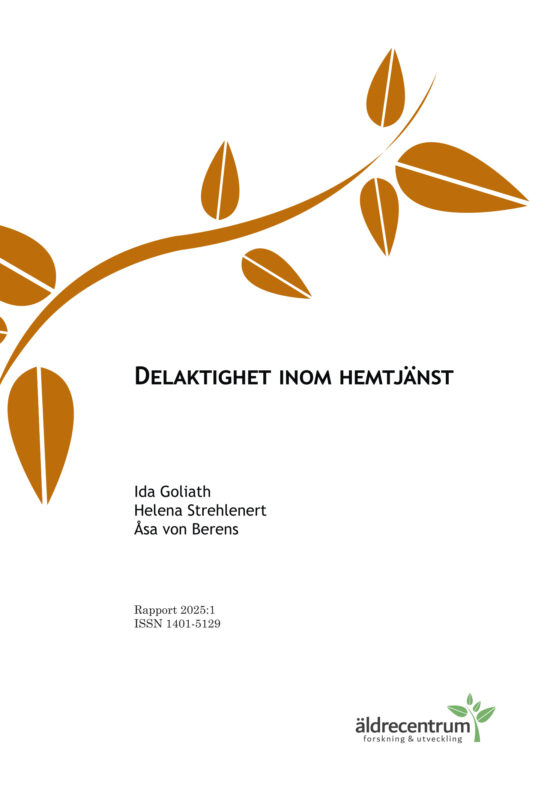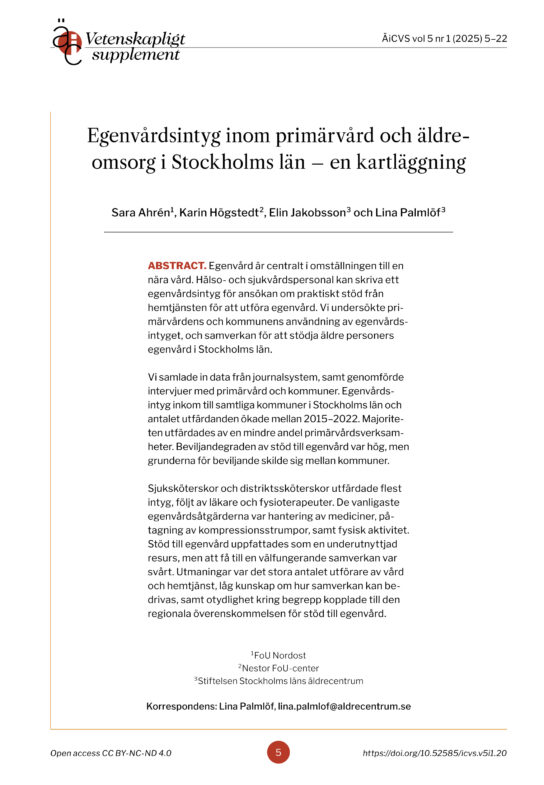Vardagsteknik i demenssjuka personers liv
 Everyday life in rural places can be hampered by many different infrastructural challenges for which technology is often considered a panacea. However, little is known about technological interactions among people living rurally with dementia, who more often live alone and make up a larger proportion of the rural population in England compared to urban. Assemblage theory in a multiple case study approach used field notes and data from a mix of instruments administered in a semi-structured interview in people’s own homes. Within and cross-case analysis illuminated the rural context of the interplay between everyday technologies and everyday life situations among ten people living with dementia in a rural part of northern England. Findings highlighted participants’ reactions and responses to interactions that involved Information Communication Technologies (ICT), driving and parking technologies, shopping, banking, and payment technologies. Other rural actors were involved in these interactions; staff and customers, neighbours, family members, infrastructures, policies and local service providers. Case’s reactions and responses were seen to involve processes of technologising and manualising to stabilise their everyday lives and mitigate destabilising threats. The implications of this paper highlight a need to: 1) Improve access to, and support people to decide upon and use rurally befitting ICT infrastructures. 2) Create easy-to-use, sustainable and resilient banking processes in rural places that promote a sense of community. 3) Simplify access to services by considering parking and technological demands and procuring the most inclusive solutions. Meeting these needs could support rural communities to become and remain dementia-friendly in the face of continuous technological change.
Everyday life in rural places can be hampered by many different infrastructural challenges for which technology is often considered a panacea. However, little is known about technological interactions among people living rurally with dementia, who more often live alone and make up a larger proportion of the rural population in England compared to urban. Assemblage theory in a multiple case study approach used field notes and data from a mix of instruments administered in a semi-structured interview in people’s own homes. Within and cross-case analysis illuminated the rural context of the interplay between everyday technologies and everyday life situations among ten people living with dementia in a rural part of northern England. Findings highlighted participants’ reactions and responses to interactions that involved Information Communication Technologies (ICT), driving and parking technologies, shopping, banking, and payment technologies. Other rural actors were involved in these interactions; staff and customers, neighbours, family members, infrastructures, policies and local service providers. Case’s reactions and responses were seen to involve processes of technologising and manualising to stabilise their everyday lives and mitigate destabilising threats. The implications of this paper highlight a need to: 1) Improve access to, and support people to decide upon and use rurally befitting ICT infrastructures. 2) Create easy-to-use, sustainable and resilient banking processes in rural places that promote a sense of community. 3) Simplify access to services by considering parking and technological demands and procuring the most inclusive solutions. Meeting these needs could support rural communities to become and remain dementia-friendly in the face of continuous technological change.
Läs hela artikeln
Publicerad:
5 februari, 2024
 Everyday life in rural places can be hampered by many different infrastructural challenges for which technology is often considered a panacea. However, little is known about technological interactions among people living rurally with dementia, who more often live alone and make up a larger proportion of the rural population in England compared to urban. Assemblage theory in a multiple case study approach used field notes and data from a mix of instruments administered in a semi-structured interview in people’s own homes. Within and cross-case analysis illuminated the rural context of the interplay between everyday technologies and everyday life situations among ten people living with dementia in a rural part of northern England. Findings highlighted participants’ reactions and responses to interactions that involved Information Communication Technologies (ICT), driving and parking technologies, shopping, banking, and payment technologies. Other rural actors were involved in these interactions; staff and customers, neighbours, family members, infrastructures, policies and local service providers. Case’s reactions and responses were seen to involve processes of technologising and manualising to stabilise their everyday lives and mitigate destabilising threats. The implications of this paper highlight a need to: 1) Improve access to, and support people to decide upon and use rurally befitting ICT infrastructures. 2) Create easy-to-use, sustainable and resilient banking processes in rural places that promote a sense of community. 3) Simplify access to services by considering parking and technological demands and procuring the most inclusive solutions. Meeting these needs could support rural communities to become and remain dementia-friendly in the face of continuous technological change.
Everyday life in rural places can be hampered by many different infrastructural challenges for which technology is often considered a panacea. However, little is known about technological interactions among people living rurally with dementia, who more often live alone and make up a larger proportion of the rural population in England compared to urban. Assemblage theory in a multiple case study approach used field notes and data from a mix of instruments administered in a semi-structured interview in people’s own homes. Within and cross-case analysis illuminated the rural context of the interplay between everyday technologies and everyday life situations among ten people living with dementia in a rural part of northern England. Findings highlighted participants’ reactions and responses to interactions that involved Information Communication Technologies (ICT), driving and parking technologies, shopping, banking, and payment technologies. Other rural actors were involved in these interactions; staff and customers, neighbours, family members, infrastructures, policies and local service providers. Case’s reactions and responses were seen to involve processes of technologising and manualising to stabilise their everyday lives and mitigate destabilising threats. The implications of this paper highlight a need to: 1) Improve access to, and support people to decide upon and use rurally befitting ICT infrastructures. 2) Create easy-to-use, sustainable and resilient banking processes in rural places that promote a sense of community. 3) Simplify access to services by considering parking and technological demands and procuring the most inclusive solutions. Meeting these needs could support rural communities to become and remain dementia-friendly in the face of continuous technological change.




